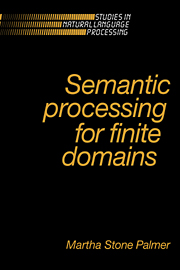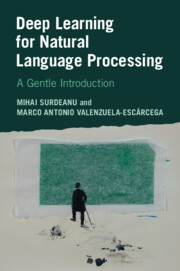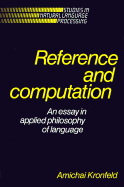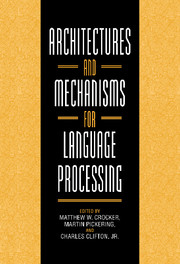Extended Finite State Models of Language
This volume and the accompanying CD-ROM cover the whole breadth of contemporary finite state language modeling, from the mathematical foundations to developing and debugging specific grammars. In addition to applications developed in the broad frameworks of the Xerox regular expression calculus or the AT&T/Bell Labs system of weighted transducers, finite state methods are shown to be useful in constraint-based or TAG-based systems, for machine translation, for information extraction, and for discourse analysis. The CD includes source code, documentation, and executables for several systems, including a faithful reconstruction of the very first finite state parser from 1959, high performance finite state toolkits, and a strikingly simple implementation of the basic ideas in hidden Markov modeling. The book is intended for students, software engineers, and researchers working in the area of natural language processing or computational linguistics.
- Key methodology of natural language processing
- All the recognized experts are contributors
- CD ROM containing source code that allows for immediate application in both classroom and research environment
Product details
September 1999Hardback
9780521631983
291 pages
237 × 160 × 22 mm
0.555kg
72 b/w illus. 36 tables
Unavailable - out of print
Table of Contents
- 1. Extended finite state models of language
- 2. A parser from antiquity: an early application of finite state transducers to natural language parsing
- 3. Comments on Joshi and Hopely
- 4. Implementing and using finite automata toolkits
- 5. Finite state morphology and formal verification
- 6. The Japanese lexical transducer based on stem-suffix style forms
- 7. Acquiring rules for reducing morphological ambiguity from POS tagged corpus in Korean
- 8. Finite state based reductionist parsing for French
- 9. Light parsing as finite state filtering
- 10. Vectorized finite state automata
- 11. Finite state transducers: parsing free and frozen sentences
- 12. Text and speech translation by means of subsequential transducers
- 13. Finite state segmentation of discourse into clauses
- 14. Between finite state and Prolog: contraint-based automata for efficient recognition of phrases
- 15. Explanation-based learning and finite state transducers: applications to parsing lexicalized tree adjoining grammars
- 16. Use of weighted finite state transducers
- 17. Colonies: a multi-agent approach to language generation
- 18. An innovative finite state concept for recognition and parsing of context-free languages
- 19. Hidden Markov models with finite state supervision.






